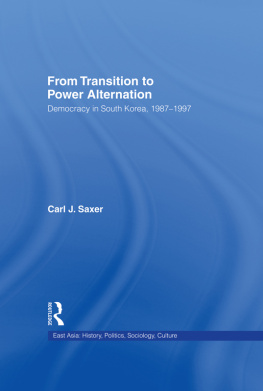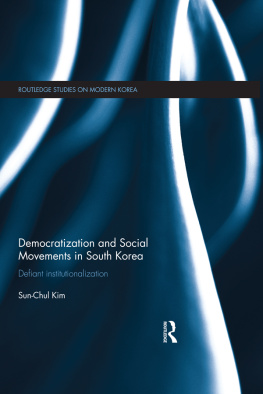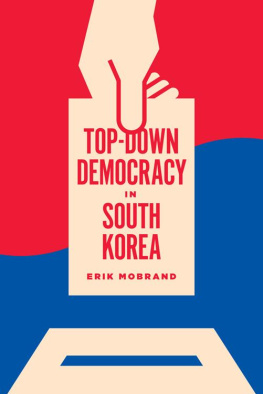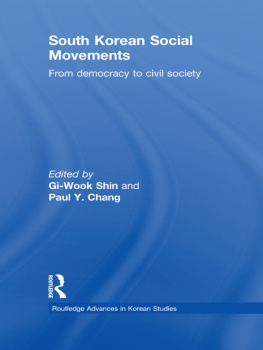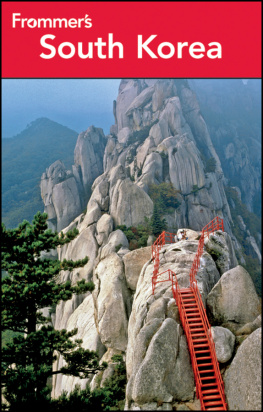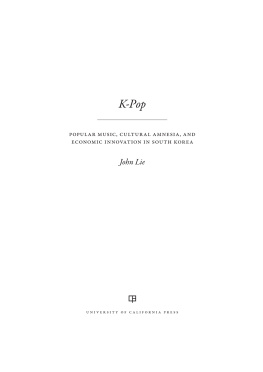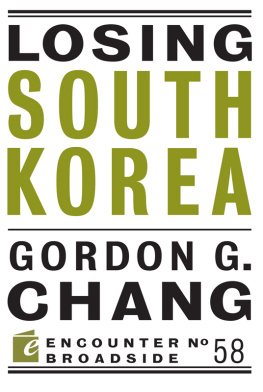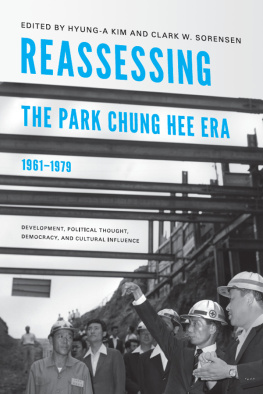E AST A SIA
H ISTORY , P OLITICS , S OCIOLOGY ,
C ULTURE
Edited By
Edward Beauchamp
University of Hawaii
A R OUTLEDGE S ERIES
E AST ASIA
H ISTORY , P OLITICS , S OCIOLOGY , C ULTURE
E DWARD B EAUCHAMP , General Editor
M ODERN E DUCATION , T EXTBOOKS, AND THE I MAGE OF THE N ATION
Politics and Modernization and Nationalism in Korean Education: 1880-1910
Yoonmi Lee
P ROBLEMS OF D EMOCRATIZATION IN C HINA
Thomas G. Lum
T HE U NKNOWN C ULTURAL R EVOLUTION
Educational Reforms and Their Impact on Chinas Rural Development, 1966-1976
Dongping Han
M AOS P REY
The History of Chen Renbing, Liberal Intellectual
Jeanette Ford Fernandez
T HE R OOTS OF J APANS E NVIRONMENTAL P OLICIES
Amy Wong
T HE O RIGINS OF THE B ILATERAL O KINAWA P ROBLEM
Okinawa in Postwar US-Japan
Relations, 1945-1952
Robert D. Eldridge
South-South Transfer
A Study of Sino-African Exchanges
Sandra Gillespie
S TUDYING THE E NEMY
Japan Hands in Republican China and Their Quest for National Identity
Christiane I. Reinhold
S ELF -R ELIANCE OR S ELF -D ESTRUCTION?
Success and Failure of the Democratic Peoples Republic of Koreas
Development Strategy of Self-Reliance Juche
Phillip H. Park
T HIRD D ELIGHT
The Internationalization of Higher
Education in China
Rui Yang
S TRUGGLE FOR N ATIONAL S URVIVAL
Eugenics in Sino-Japanese Contexts, 1896-1945
Yuehtsen Juliette Chung
R ETHINKING J APANS I DENTITY AND I NTERNATIONAL R OLE
An Intercultural Perspective
Susanne Klien
J APANS F OREIGN P OLICY M ATURATION
A Quest for Normalcy
Kevin J. Cooney
V ILLAGE , M ARKET AND W ELL -B EING IN A R URAL C HINESE T OWNSHIP
Tamara Perkins
H ISTORY OF J APANESE P OLICIES IN E DUCATION A ID TO D EVELOPING C OUNTRIES , 1950S-1990S
The Role of the Sub governmental Processes
Takao Kamibeppu
E NGINEERING THE S TATE
The Huai River and Reconstruction in Nationalist China, 1927-1937
David A. Pietz
F ROM T RANSITION TO P OWER
A LTERNATION
Democracy in South Korea, 1987-1997
Carl. J. Saxer
Routledge
New York & London
Published in 2002 by
Routledge
270 Madison Ave,
New York NY 10016
Published in Great Britain by
Routledge
2 Park Square, Milton Park,
Abingdon, Oxon, OX14 4RN
Routledge is an imprint of the Taylor & Francis Group
Transferred to Digital Printing 2010
Copyright 2002 by Routledge
All rights reserved. No part of this book may be reprinted or reproduced or utilized in any form or by any electronic, mechanical, or other means, now known or hereafter invented, including photocopying and recording, or in any information storage or retrieval system, without permission in writing from the publisher.
Library of Congress Cataloging-in-Publication Data
Saxer, Carl J.
From transition to power alternation : democracy in South Korea, 1987-1997 / by Carl J. Saxer.
p. cm. (East Asia : history, politics, sociology, culture)
Includes bibliographical references and index.
ISBN 0-415-93393-5
1. DemocracyKorea (South) 2. DemocratizationKorea (South) 3. Korea (South)Politics and government1988- I. Title. II. East Asia (New York, N.Y.) JQ1729.A15 S39 2002
320.9519509049dc21 | 2002021954 |
Publishers Note
The publisher has gone to great lengths to ensure the quality of this reprint but points out that some imperfections in the original may be apparent.
Contents
List of Figures
List of Tables
Abbreviations
| ANSP | Agency for National Security Planning |
| CCEJ | Citizens Coalition for Economic Justice |
| CDS | Capitalist Developmental State |
| CEMC | Central Election Management Committee |
| CISJD | Christian Institute for Justice and Development |
| DIA | Defense Intelligence Agency |
| DJP | Democratic Justice Party |
| DKP | Democratic Korea Party |
| DLP | Democratic Liberal Party |
| DMZ | De-Militarized Zone |
| DP | Democratic Party |
| DSC | Defense Security Command |
| EPB | Economic Planning Board |
| FKI | Federation of Korean Industries |
| GNP | Grand National Party |
| IMF | International Monetary Fund |
| KCTU | Korean Confederation of Trade Unions |
| KFTU | Korean Federation of Trade Unions |
| KNP | Korea Nationalist Party |
| LDC | Liberal Democratic Coalition |
| NCDC | National Coalition for a Democratic Constitution |
| NCNP | National Congress for New Politics |
| NDP | New Democratic Party |
| NDRP | New Democratic Republican Party |
| NKDP | New Korea Democratic Party |
| NKP | New Korea Party |
| NSL | National Security Law |
| NSP | New Socialist Party |
| NSS | National Security State |
| RDP | Reunification Democratic Party |
| ULP | United Liberal Party |
| UPP | Unification Peoples Party |
Note on Romanization
I N GENERAL, KOREAN WORDS AND NAMES IN THIS STUDY CONFORM TO A modified McCune-Reischauer transliteration system. Exceptions are made for those individuals who have their own more familiar renderings (e.g. Syngman Rhee, Park Chung-hee and Chun Doo-hwan). Where a preferred rendering is not known, the McCune-Reischauer system is used. With a very few exceptions family names precede given names and given names are hyphenated. Although I do use diacritical markings when transliterating Korean authors names and book titles, I omit these markings when transliterating names of regions and places, such as Taejon and Cholla province.
Acknowledgments
T HROUGHOUT THE WRITING OF THIS BOOK, AND THE DISSERTATION ON which it builds, I have benefited from the support of a large number of people. First among them must be Professor Rosemary Foot to whom I express my deepest appreciation for her endless support during my years at Oxford. Even in the darkest moments she was a constant source of encouragement. Many thanks go to Professor J.A.A. Stockwin at the Nissan Institute, Oxford for his insightful comments and suggestions on the dissertation on which this book builds.
In Copenhagen Professor Kjeld Erik Brodsgaard has ever since my graduate studies there been very helpful in more ways and instances than I can mention here. He served as my first introduction to how serious research is conducted, and was with good humor the recipient of numerous requests for assistance.
In Seoul Professor Choi Sang-yong, Dr. Choi Kwang-pil and later Professor Choi Jang-jip, welcomed me at the Asiatic Research Centre, Korea University for which I owe them my gratitude. Numerous librarians at Korea University Library, the Korea Social Science Research Library, the National Library, and at the National Assembly Library generously helped with locating material.

